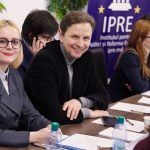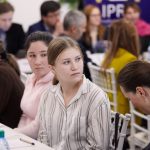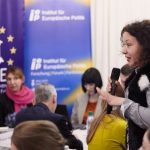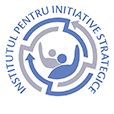#WEandEU in Nisporeni: IPIS, IPRE and IEP learned how local people see the process of Moldova’s association with the EU

The participants of our second regional dialogue with citizens, held within the “EU in Moldova: Perceptions and Realities” programme, were able to share their opinions on Moldova’s relations with the European Union and to find out how they can access the European funds.
“My main problem is how to make our abandoned rural houses revive again,” IPIS President Andrei Popov said at the opening of the meeting. He believes that in the European Union states work for the benefit of their citizens, which is difficult to say in the case of Moldova.
“In Moldova – when you have a problem, you will think ten times before turning to the state, because you wonder whether the state will help you or prevent you more? The state should be for the person, not the person for the state. The Association Agreement must be implemented to build such a state,” – Andrei Popov said.
One of the meeting participants said that, in her opinion, people know little about the Association Agreement. “But, I would like to understand who is responsible for the implementation of this agreement,” – added the woman.
Another participant of the meeting was interested in the mechanism of financing by the EU of ordinary citizens’ initiatives. “I would like to know why there are people who do not win projects,” -he said.
One of the IPIS executive directors, Vadym Pistrinchuk, specified that “investments from the EU do not come for nothing, they should be carefully formulated. “The main advice in project writing is to contact local partners, who can help you write these projects,” – said Vadim Pistrinchuk.
In response, another participant noted: “Donors work through NGOs, and it turns out that half of the project budget remains with them. Plus, at the local level it is not so easy to find an NGO through which to apply.
The programme “We and the EU: Perceptions and Reality” is implemented by the Institute for Strategic Initiatives of Moldova, the Institute for European Politics in Berlin and the Institute for European Politics and Reforms from July 2019 to June 2020 with the support of the German Federal Foreign Office.





















 Română
Română Русский
Русский